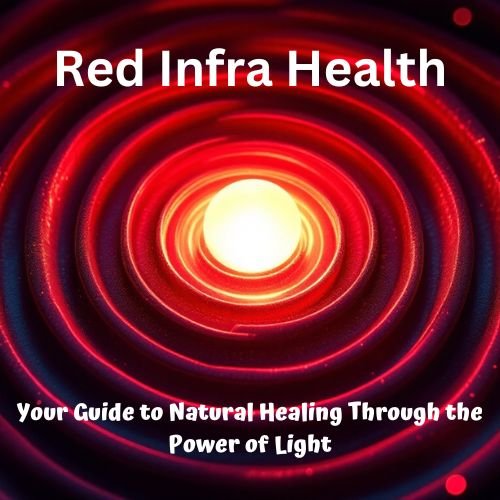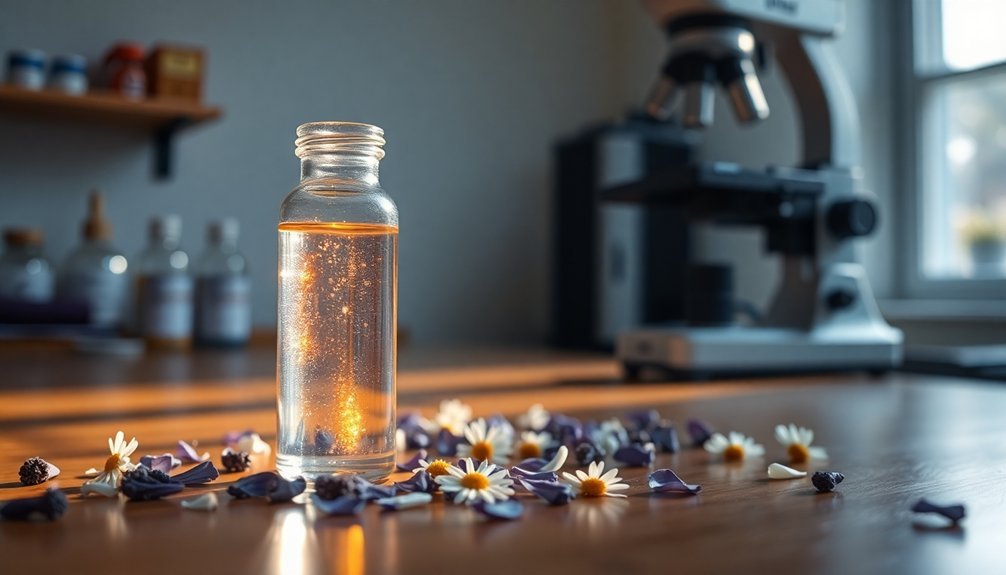You can boost your collagen naturally through seven proven methods that work together. Start by eating foods rich in vitamin C and protein, like citrus fruits and fish, while incorporating bone broth for immediate collagen support. Stay active with regular exercise to improve blood circulation and trigger collagen production. Try red light therapy to stimulate fibroblast growth, and add targeted supplements like vitamin C and zinc. Include anti-aging herbs such as ginseng and ashwagandha in your routine, and protect your existing collagen with proper sun protection. These evidence-based strategies will help you maintain youthful skin, strong joints, and healthy bones – but there's much more to discover about maximizing your results.
Eat Your Way To Collagen

Along with aging, your body's natural collagen production begins to decline, but you can boost its production through strategic food choices.
You'll want to focus on foods rich in vitamin C, like citrus fruits and berries, as this nutrient is essential for collagen synthesis and stabilization.
Include protein-rich foods in your diet, such as fish and chicken, which provide the essential amino acids your body needs to create collagen. Don't forget about egg whites and beans, as they're excellent sources of these building blocks. Adding bone broth to your diet can significantly increase your collagen intake.
You'll also benefit from leafy greens, which deliver both vitamin C and E, working together to support collagen formation.
Make white tea your beverage of choice, as its antioxidants help preserve existing collagen. Add avocados, nuts, and seeds to your meals for vitamin E and healthy fats.
To maximize collagen production, you'll need to maintain proper hydration and limit your sugar intake, as excess sugar can damage collagen fibers.
Remember to include zinc-rich and copper-containing foods in your diet, as these minerals play important roles in collagen synthesis and maintenance.
Exercise For Skin Health
Regular exercise does more than just keep you fit – it's a powerful catalyst for healthy, glowing skin. When you work out, you're boosting blood circulation throughout your body, delivering essential oxygen and nutrients to your skin cells while helping remove toxins and waste products. This improved circulation directly supports your skin's natural collagen production process.
During exercise, your body responds to mild physical stress by activating repair mechanisms that enhance collagen synthesis. This increased collagen production helps maintain your skin's elasticity and firmness, reducing the appearance of fine lines and wrinkles. Regular resistance training can also increase the production of biglycan proteins that help regulate skin tissue structure.
Additionally, when you sweat during workouts, you're naturally detoxifying your skin by flushing out impurities and unclogging pores.
Exercise also plays a vital role in stress reduction, which markedly impacts your skin health. By lowering cortisol levels and releasing endorphins, regular physical activity helps prevent stress-induced skin problems like acne, eczema, and psoriasis.
Remember to cleanse your skin after working out to prevent breakouts and maximize the benefits of your exercise routine. Through consistent physical activity, you'll maintain hormonal balance and support your skin's natural moisture levels.
Red Light Therapy Benefits

Red light therapy stands as a revolutionary breakthrough in natural collagen production and skin rejuvenation. This FDA-cleared treatment uses high-intensity red and near-infrared LEDs to penetrate your skin, stimulating fibroblast growth factors that boost collagen and elastin production.
You'll find it's particularly effective at improving skin texture, reducing fine lines, and evening out your skin tone. The therapy promotes ATP energy production in cells through enhanced mitochondrial function.
What makes this therapy especially appealing is its versatility in treating various skin conditions. You can use it to address psoriasis, burn scars, stretch marks, and even stubborn acne or rosacea. It's also proven effective for wound healing and reducing inflammation, making it a thorough solution for multiple skin concerns.
You'll appreciate that red light therapy is non-invasive and requires no downtime. While you might experience temporary mild side effects like slight skin irritation, the benefits far outweigh these minor inconveniences.
The therapy works by increasing blood flow and promoting cellular turnover, which directly contributes to healthier, more youthful-looking skin. Research consistently shows significant improvements in skin appearance, and you'll find it's particularly effective when used regularly as part of your skincare routine.
Nutrient-Rich Supplements
Natural supplements play an essential role in supporting your body's collagen production from the inside out. Key nutrients like vitamin C, zinc, copper, and silicon work together to enhance collagen synthesis and protect existing collagen from damage. Vitamin C is vital since the body cannot form collagen without it. You'll want to focus on supplements that contain these essential building blocks along with vital amino acids like lysine and proline.
Research strongly supports the effectiveness of collagen supplements, with studies showing significant improvements in skin hydration, elasticity, and wrinkle reduction.
A thorough review of 19 studies involving 1,125 participants confirmed that collagen supplements can enhance skin firmness and moisture content. You'll typically need between 2.5-15 grams daily to see benefits.
When choosing supplements, look for those containing prolylhydroxyproline and hydroxyprolylglycine peptides, as these have shown the most promising results.
Marine collagen supplements combined with hyaluronic acid are particularly effective for improving skin hydration and tightness while strengthening hair and nails. While more long-term studies are needed, current evidence suggests that high-quality collagen supplements can effectively support both skin health and joint function.
Anti-Aging Herbal Solutions

Beyond supplements, herbal remedies offer powerful support for your body's collagen production and anti-aging efforts. Traditional herbs like ginseng and ashwagandha pack a punch with their antioxidant properties, helping shield your skin from free radical damage while boosting collagen synthesis.
You'll find that holy basil's vitamin C content works directly to enhance collagen production, while witch hazel fights inflammation and potential skin infections. Adding citrus or berries to your herbal teas can maximize the vitamin C benefits.
These botanicals work through multiple mechanisms to protect and enhance your skin's health. Flavonoids and terpenoids in these herbs strengthen your skin's resistance to DNA damage, while polysaccharides actively boost collagen levels.
If you're dealing with stress-related skin issues, ashwagandha's cortisol-lowering properties can help prevent acne breakouts and promote healthier skin.
You can also turn to time-tested traditional medicines like Ganoderma lucidum and Ginkgo biloba, which have proven anti-aging benefits. These herbs contain specific compounds like ginsenosides that directly promote collagen production.
When you're looking to enhance your skin's natural collagen levels, incorporating these herbal solutions can provide thorough support through their antioxidant, anti-inflammatory, and collagen-boosting properties.
Smart Sun Protection Strategies
In the battle against skin aging, effective sun protection serves as your first line of defense for maintaining healthy collagen levels. To maximize your protection, you'll need to master both sunscreen application and protective clothing strategies.
When applying sunscreen, remember that quantity matters – use one teaspoon each for your head and neck, limbs, front, and back. You'll need to reapply every two hours, especially after swimming or sweating.
Choose broad-spectrum mineral sunscreens containing zinc oxide or titanium dioxide, as they're effective immediately and gentler on sensitive skin. Remember that UV protection is needed even on cool or cloudy days when the UV index is 3 or above.
Your clothing choices play a vital role in UV protection. Opt for fabrics with UPF 50+ ratings and darker colors, as they provide superior protection against harmful rays.
Keep in mind that wet or stretched clothing loses its protective qualities, so pack dry alternatives when needed.
Don't forget your eyes – they're vulnerable to UV damage too. Wear sunglasses with 100% UVA and UVB protection, and pair them with a wide-brimmed hat for thorough coverage.
You'll get the best results by avoiding peak sun hours between 10 a.m. and 4 p.m. or seeking shade during these times.
Essential Lifestyle Changes

Your exercise habits and sleep patterns play vital roles in your body's natural collagen production, with proper rest enabling essential growth hormone release and workout recovery.
You'll want to balance your fitness routine with adequate sleep, as high-intensity workouts can deplete collagen levels while quality rest helps replenish them. Consuming fatty fish rich in omega-3s helps support skin repair during post-workout recovery periods.
Managing your daily stress levels through relaxation techniques and consistent sleep schedules helps maintain healthy cortisol levels, which directly impacts your body's ability to produce and maintain collagen.
Exercise and Sleep Matter
The relationship between exercise, sleep, and collagen production creates a complex interplay that substantially impacts your body's ability to maintain healthy collagen levels.
While exercise brings numerous health benefits, high-intensity workouts can deplete your collagen supplies through oxidation and muscle microlesions. Athletes engaging in rigorous training show lower collagen levels compared to non-athletes of the same age. That's why you'll want to supplement with collagen post-workout to replenish your levels and support muscle repair.
Your sleep quality directly influences collagen synthesis, as your body releases growth hormones during rest that stimulate collagen production. When you don't get enough sleep, you'll disrupt your circadian rhythms and compromise your skin's ability to produce and maintain collagen. Poor sleep can also lead to increased inflammation and accelerated skin aging.
To optimize your collagen levels, combine smart exercise habits with proper sleep hygiene. Take collagen supplements after workouts, stay hydrated by drinking at least 2L of water daily, and maintain consistent sleep patterns.
You'll also want to avoid sugar and incorporate collagen-boosting foods rich in vitamin C and sulfur into your diet. These strategies work together to support your body's natural collagen production and help maintain healthy levels.
Manage Daily Stress Levels
Managing stress levels plays a significant role in maintaining healthy collagen production, much like proper exercise and sleep habits. When you're stressed, your body releases cortisol, which can break down collagen and accelerate skin aging.
By implementing effective stress management techniques into your daily routine, you'll protect your existing collagen and support new production. Getting at least seven hours of quality sleep each night helps your body manage stress more effectively.
Start incorporating these science-backed stress reduction practices:
- Practice deep breathing exercises and mindfulness meditation for 10-15 minutes daily to reduce cortisol levels
- Schedule regular breaks for progressive muscle relaxation or short mindful moments
- Engage in enjoyable leisure activities or hobbies that help you unwind
- Use time management and organizational tools to prevent overwhelming situations
- Connect with friends and participate in social activities that bring joy and laughter
Make these stress-management practices a consistent part of your lifestyle. You'll not only preserve your collagen levels but also experience improved mental clarity, better physical health, and enhanced overall well-being.
Remember that managing stress isn't just about looking better – it's about creating a sustainable, healthy foundation for your body's natural collagen production processes.
Frequently Asked Questions
Can Certain Medications Interfere With Natural Collagen Production in the Body?
Yes, you'll find that oral steroids, asthma inhalers, topical steroids, beta-agonists, and fluoroquinolones can substantially reduce your body's collagen production, leading to thinner skin and increased risk of tissue damage.
How Long Does It Typically Take to See Results From Collagen-Boosting Efforts?
You'll typically notice initial results from collagen-boosting efforts within 30 days, with most significant improvements appearing after 60-90 days of consistent effort. Keep in mind that individual results can vary considerably.
Does Genetic Makeup Affect How Effectively Our Body Produces Collagen?
Yes, your genetic makeup substantially impacts how well you produce collagen. Your genes influence both synthesis and degradation rates, and genetic variations can affect your body's ability to maintain healthy collagen levels naturally.
At What Age Does Natural Collagen Production Start Declining Significantly?
Your body's natural collagen production begins declining around your mid-20s, dropping about 1% each year. You'll notice more significant changes in your 40s and 50s, with women experiencing dramatic decreases during menopause.
Can Stress Levels Directly Impact Collagen Synthesis and Degradation Rates?
Yes, your stress levels directly impact collagen production. When you're chronically stressed, your body releases cortisol, which degrades existing collagen and reduces new synthesis, leading to accelerated skin aging and slower healing.
In Summary
You'll find that boosting collagen naturally doesn't require expensive treatments or complicated routines. By combining proper nutrition, regular exercise, red light therapy, targeted supplements, herbal solutions, sun protection, and healthy lifestyle habits, you're setting yourself up for healthier, more resilient skin. Start implementing these seven proven strategies today, and you'll notice improved skin elasticity, reduced fine lines, and a more youthful appearance over time.





Leave a Reply